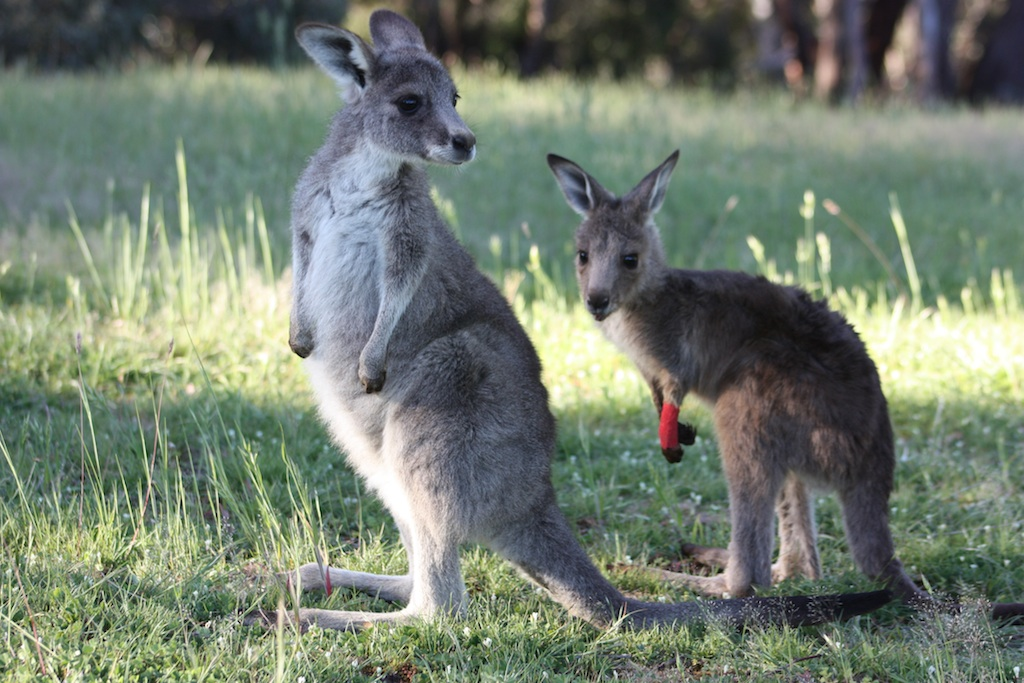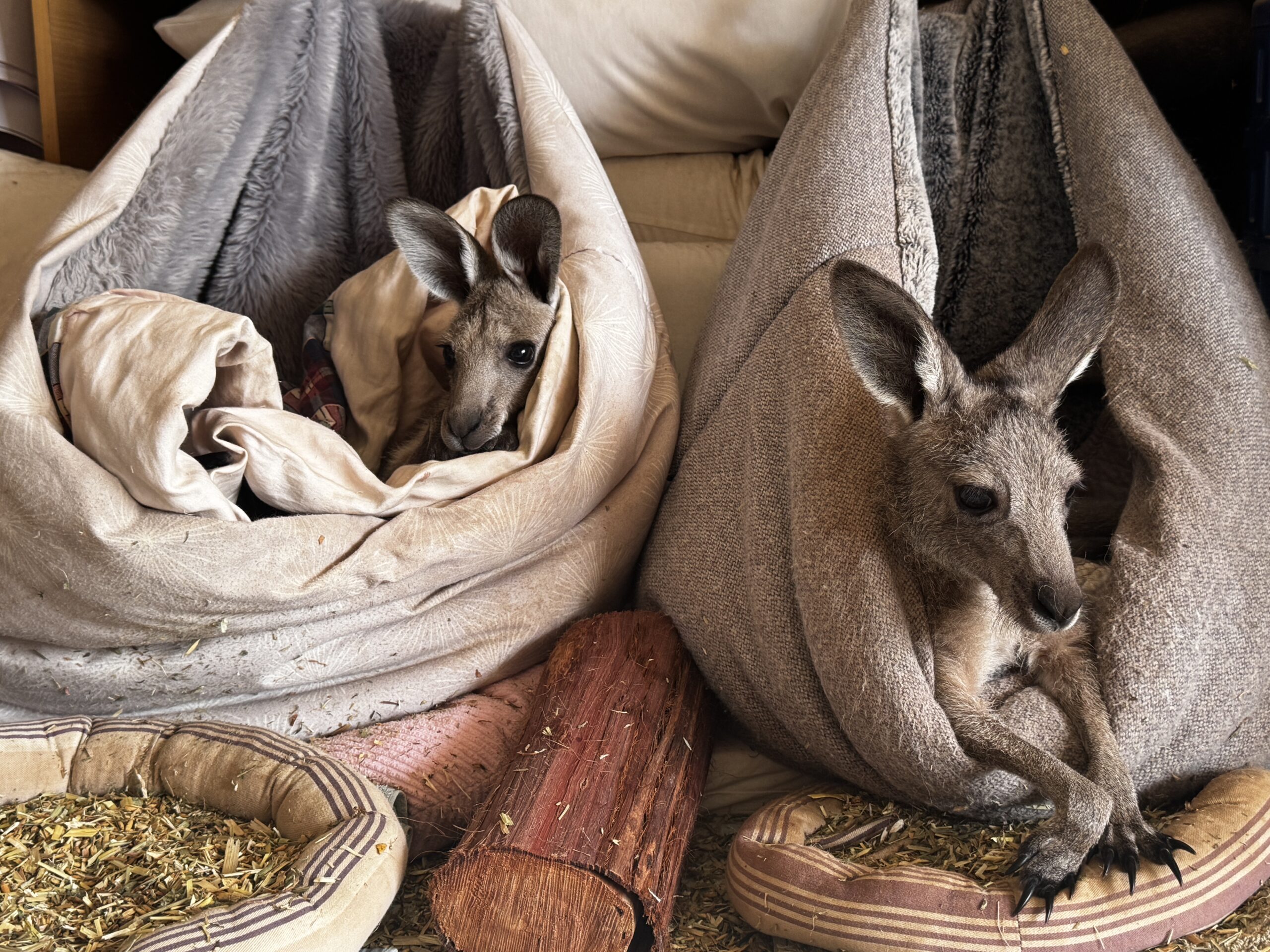Data on NSW licencing reveal the extent of Government-sanctioned destruction of native animals in the state | Conservation groups and wildlife carers to provide evidence of the extent of cruelty at inquiry into licensed killing SYDNEY (5 February, 2026)—Humane World for Animals Australia (previously Humane Society International Australia) will...
Maugean skate may follow thylacine and be extinct in 10 years, new study finds Salmon farms and dams are destroying its only home in Macquarie Harbour
Tasmania’s Maugean skate has been around since the dinosaurs but it could become the first ray or shark in the world to become extinct in modern times as a direct result of human activity, after a new study found their population has plummeted in recent years.
The Australian Government must do everything in its power to avoid a global extinction event that scientists fear could occur within 10 years, possibly as soon as five, the Australian Marine Conservation Society (AMCS) and Humane Society International (HSI) said today after the report was released. Urgent recovery measures for the Maugean skate must include: restoring the health of Macquarie Harbour; development of a captive breeding program; and ongoing population monitoring of the skate’s population.
The Maugean skate – part of the cartilaginous group of fishes that includes sharks and rays – lives solely in part of Macquarie Harbour on the remote west coast of Tasmania. It’s an area of less than 100 square kilometres, making it one of the world’s most geographically restricted shark or ray.
The water quality of Macquarie Harbour is extremely poor, primarily because of depleted oxygen from intensive salmon farming and altered river flows from the damming of rivers that feed the harbour. The skates, and any eggs they lay, are deprived of the oxygen they need to live.
AMCS shark scientist Dr Leonardo Guida said: “The Maugean skate has been around since Tyrannosaurus Rex roamed the Earth but is now literally being choked to death in its home that man has turned into a putrid bathtub. If the Australian Government does not act now, it may disappear on our watch.
“Tasmania is home to Australia’s most infamous extinction, that of the thylacine or Tasmanian tiger. Does the state really want the ignominy of hosting the world’s first extinction of a shark or ray in modern times due to human activity?”
The Maugean skate population is plummeting. The University of Tasmania’s Institute of Marine and Antarctic Studies (IMAS) report is alarming, finding that since 2014 the population has declined by half (47%), with most of the decline occurring in two mass mortality events of 2019. Studies have not directly investigated the cause of mortality, but multiple lines of evidence indicate extremely low oxygen levels (0-20%) were a major factor, resulting from intensive salmon aquaculture and altered river flows into the harbour to support the production of hydroelectricity.
In 2019 intense coastal storms effectively turned the harbour water upside down, an ‘inversion event,’ where seawater pushed through the harbour’s narrow entrance forced oxygen-depleted bottom water into the shallower waters where the skates prefers to live and lay eggs, literally choking the animal and its embryos. There are justifiable fears that unless the harbour is given a rest from salmon aquaculture, and river flows are regulated to support increased oxygen levels deep in the harbour, there will be no resilience against killer ‘mixing events’ that will likely increase with a warming climate.
Report author Dr David Moreno, from IMAS, said: “We have monitored the skates since 2012 and found the population declined by almost 47% between 2014 and 2021. It is also concerning that very few juveniles are coming through to keep the population viable.
“The reality is that we risk losing an important species that only exists in this harbour. So human activities related to the skate need to be managed, such as recreational fishing and those that affect the marine environment such as salmon aquaculture and river flow management for hydro production.
“There is an urgent need to consider this new information in any future management action, particularly those actions that can help directly address habitat degradation in the harbour.”
The Australian Government has made the commendable ambition of ‘no new extinctions’ and included the Maugean skate as one of Australia’s ‘100 Priority Species’, but it risks falling at the first hurdle with the extinction of the Maugean skate within as little as 10 years.
HSI marine biologist Lawrence Chlebeck said: “This is an extinction emergency. which is why HSI and AMCS have nominated the Maugean skate for Critically Endangered status. We are appealing to federal environment minister Tanya Plibersek to intervene to ensure urgent recovery measures are put in place to save the species. We cannot sit back and let another species disappear forever.”
Dr Guida said: “For the Maugean skate to have any chance at recovery, emergency conservation action must get underway and include a captive breeding program, ongoing population monitoring in Macquarie Harbour, and restoration of the health of the harbour itself to assist wild and captive bred individuals into the future. This means giving the harbour an immediate rest from salmon farming and regulating river flows for their downstream effects into the harbour.”
Mr Chlebeck said: “Australians are innovative – we invented wifi, the black box and the bionic ear. We can save the Maugean skate from extinction too, and we must start doing so now because we just might see a new extinction.”
For further comment contact:
HSI marine biologist Lawrence Chlebeck on 0481 774 581
or AMCS shark scientist Dr Leonardo Guida on 0400 896 567


